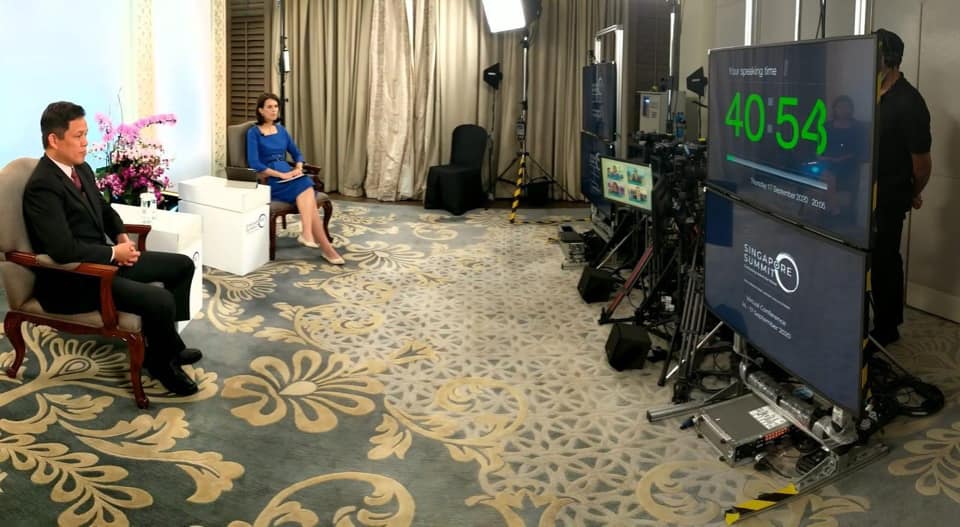Singapore — With the Covid-19 pandemic showing that more work can be done online, the competition for white-collar jobs is expected to become more intense, according to Trade and Industry Minister Chan Chun Sing.
Mr Chan said this on Thursday (Sept 17), the fourth and final day of this year’s Singapore Summit, which was a virtual gathering due to the pandemic.
Speaking on a range of issues that included the future of work, he said: “In the past, people think that the blue-collar workers are the ones at risk and that’s because their jobs can be replaced by robots and automation. To some extent, that is true.
“But increasingly, I think the world is realising that competition is even tougher for the white-collar jobs that can be done over the Internet. The jobs that can be done over the Internet can be done anywhere in the world and because of this, white-collar jobs will no longer have the geographical insulation it used to have.”
Trade-reliant Singapore has been especially affected by the lockdowns and global uncertainties due to the pandemic, he added, and its economy has contracted by a record 13.2 per cent in the second quarter of 2020, compared to the same period in 2019.
He also mentioned the stimulus funds that the Government released of around S$100 billion, which is about 20 per cent of the country’s gross domestic product, with an eye towards job creation and preservation in promising industries.
Another panellist, Ms Fleur Pellerin, the Co-founder and Managing Partner, Korelya Capital, added: “I think from a public point of view, it’s a very difficult topic to handle because we see that the new economy creates jobs, but probably not enough jobs to replace all the jobs that would become obsolete because of automation, artificial intelligence, et cetera.”
She added that it will be hard for governments to anticipate changes in the labour market over the next 5 to 10 years stemming from technological advances or shifts in the global environment.
Mr Chan responded that the Singapore Government will not wait for the end of the pandemic in order to amplify its efforts at economic recovery, even though the country’s recovery is dependent on the global economy, as he acknowledged that other parts of the world are still grappling with widespread Covid-19 infections.
In a separate interview with CNBC’s “Squawk Box Asia” on Thursday (Sept 17), Mr Chan again spoke about Singapore’s economic recovery, telling host Mr Sri Jegarajah: “We expect to progressively recover for the last two quarters of this year but whether we will be in the clear by next year will very much depends on the global economic performance.
“We will continue to diversify our markets and pivot into new products and services. So we’re not waiting for the pandemic to blow over.”
And in a Facebook post, the minister thanked the Temasek Foundation for inviting him to speak at the summit.
https://www.facebook.com/ChanChunSing.SG/photos/a.908713829180601/3571290826256208/
He discussed the challenges faced by governments today, writing: “The real challenge that we need to address is not the pervasiveness of technology or the rise of digitalisation, but how every government is able to muster the political will to help their people make the necessary adjustments.
“However, beyond the initial adjustments, governments must also remain committed to helping their people continuously upskill and reskill to adapt to the changes that are taking place in an increasingly digital world where economic cycles will be further compressed.” /TISG
Read also: Quality, not quantity, key when it comes to global talent in Singapore — Chan Chun Sing
Quality, not quantity, key when it comes to global talent in Singapore — Chan Chun Sing

